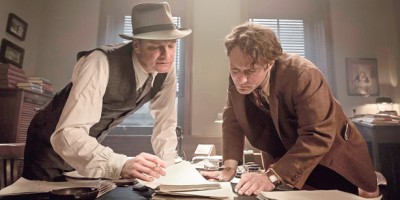
An editor is like a priest or a psychiatrist; if you get the wrong one then you are better off alone.
– Toni Morrison
My friend Ed Beitiks used to have great fun telling a joke about an editor walking off with a piece of writing, unzipping and taking a leak on it.
“What are you doing?” the astonished writer protests.
“Improving it!” the editor gruffly retorts.
Ed would flash his eyes wide with maniac glee at the punch line, knowing that you and he had both been there when it came to clumsy, tone-deaf editing that took the life out of writing for no good reason. Then again, Ed loved a good editor with fierce devotion; he knew there were times when he needed someone to point him in a different direction. If he’d lived long enough to complete his novel about his time in Vietnam, maybe I’d be publishing him now through Wellstone Books and he’d yell at me for daring to make a change but we’d tango through to an understanding and a better book.
Two things strike me about the need for a great editor: one, you can only be a great editor if you have an ear, if you hear the words like music, and a great editor almost by definition has to care enough, has to be deep enough into the world of a piece of writing, to expect to take some flack for editing changes or suggestions and find a way to reply and turn the back-and-forth into progress. But editors with those qualities are scarcer and scarcer, and that goes for the world of book publishing, not just the beleaguered world of what we used to call journalism
The underlying problem is: It’s just not part of the business model of most contemporary publishers to devote careful attention to working with writers on a book over years and earning the kind of trust to send a writer back to the page again and again with a refreshed vision of how to make the writing better, not just make sideways tweaks so everyone can feel like they’re checking that box.
I think of T.S. Eliot and his manuscript for what became The Waste Land – and how Ezra Pound, perhaps not the most mellifluous of writers himself but a shrewd and visionary editor, dynamited it down to the poem so many of us studied – and loved – in school. Pound made small changes, he made large changes – and he brought a consuming passion to the task that paralleled the kind of ongoing focus a writer brings to the marathon of writing and rewriting and creating a finished work.
At a cocktail party in Berlin one time I met a bright young writer, charismatic and talented, who explained to me that every time he’d done maybe a thousand or two thousands words of writing on his next book, he would post what he had online and let various people check in with thoughts, suggestions, gibes, whatever. An interesting exercise, surely, an admirable exploration of the possibilities of social media connection, but no social media free-for-all could ever in a million years do for this writer what Pound did for Eliot in producing a masterpiece.
Max Perkins, who edited F. Scott Fitzgerald, Thomas Wolfe and Ernest Hemingway, exists to many of us now almost as a secular saint for his devotion to seeing the finished work a book could be and leading a young, talented writer through the grueling obstacle-course ordeal of repeated manuscript-length revision. It’s touching to read now of how Wolfe and Perkins had a falling out, but how on his death bed Wolfe defied his doctor’s advice and insisted on writing a final note – to Perkins – that is remarkably tender and moving.
A great editor is one who would, say, be out for a walk in the park on Sunday with his or her young sons and – ka-zam – suddenly have a flash of fresh insight into a book he or she is editing, a nugget to be handed over to the writer in a spirit of see-what-you-can-do-with-this. I know there are great young book editors like this working now, like Diana Miller at Knopf or my own amazing editor at Grove Atlantic, Jamison Stoltz, Juliet Grames at Soho Press or (less young) Pete Danko of Wellstone Books, but I worry that with time and shifting fiscal realities of book publishing, they will be asked to put less heart and soul (and time) into each book they edit.
Ultimately, what we’re seeing is a shift to where any would-be great writer has to create a great editor, rather than find one, and the best way to do that is to become a great editor yourself. Not an easy task! But it’s important to understand the limitations of “readers,” as they are called, friends we send our manuscripts so they can send us notes. These notes invariably improve a book tremendously, and speaking as one author I can say I’m grateful beyond words for anyone who has read a manuscript of mine and helped out with notes. But these notes represent incremental progress. They are nothing like the perspective of a great editor who joins a writer in living with a manuscript for months or more likely years.
The first step toward turning yourself into a great editor is to recognize it as a goal – then to set about working to develop your own ear and your own eye. Some suggestions:
- However much book-reading you do now, do more – with pen in hand, to comment on lines you love, passages you think you could help, word-choice bobbles you think you could fix.
- Read aloud often, at gatherings like our Wellstone Center Tuesday night OpenMic or whatever you can find, and try reading your own writing aloud into a tape recorder (or your smart phone), and then listen days later; you’ll feel the writing in new ways.
- Read great books on writing like the classic Elements of Style by E.B. White and William Strunk. Anne Lamott, Stephen King, Ray Bradbury – all provide added leverage to an editor looking for ways to feel writing more and to think about it.
- Finally, and most important, read as yourself. It does not matter when you are reading what you imagine some other reader might make of a passage, what some other reader might or might not feel; leave that to them. A large percentage of godawful editing comes from editors with no ear who never feel the words as words, who never stand alone with the words and the music they make (or don’t). It all starts with one honest emotional reaction – and that only comes if you create silence, ignore everything but what the words make you feel.
– Steve Kettmann
Want to receive Steve’s blog on writers and writing every week by email? Sign up below.

